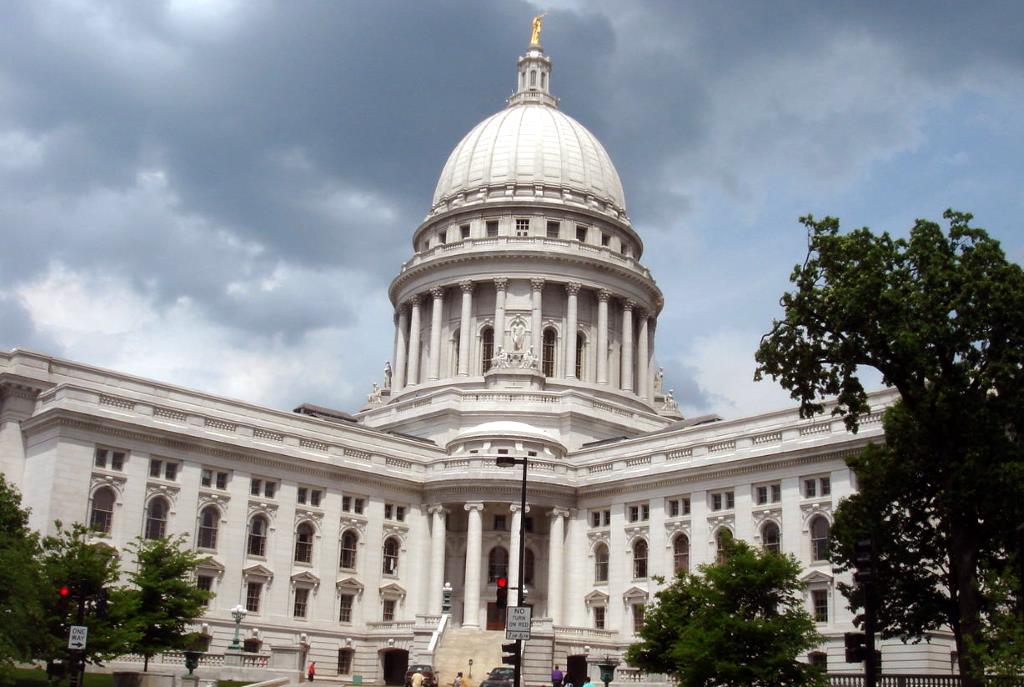No Choice in 36% of Legislative Races
Gerrymandering and decline in number of candidates leaves 2.5 million residents with no choice.
Nearly 2.5 million Wisconsin residents will have little or no choice in the fall elections about who represents them in the state legislature, according to a review by the Wisconsin Democracy Campaign.
That’s because only one major party candidate will be on the ballot in 42 of the 116 Senate and Assembly races in November (see Table). That’s more than one-third of the races, and there are nearly 2.5 million Wisconsinites in those districts. In 37 of those races, the major party candidate faces no opposition in November. And in the other five legislative contests the major party candidate faces only third party or independent opposition.
The reasons:
- Legislative districts were redrawn after the 2010 U.S. Census in a highly partisan manner by the GOP-controlled legislature and approved by Republican Gov. Scott Walker. A panel of federal judges ruled that this rigging of the maps was unconstitutional, and the U.S. Supreme Court will issue its own ruling on this any day now.
- Wisconsin’s campaign finance laws have been decimated by numerous state and federal court decisions and the Republican-controlled legislature and Walker since 2010. Wealthy special interests can secretly raise and spend millions of dollars on negative broadcast ads, mailings and other outside electioneering activities to help the legislative and statewide candidates of their choice. As a result, fewer people are willing to run for public office because they’ll have to raise a lot of money and may face sleazy attacks from dark money groups. In this year’s fall legislative elections, 238 candidates submitted paperwork to be on the primary ballot. That is noticeably lower than the 250 to 270 candidates that legislative elections usually draw. (This year’s number of legislative candidates could change depending on a final review of candidates’ paperwork on June 11 by the state elections commission.)
There are 16 open seats because the incumbent is either retiring or running for another office. Open seat contests generally draw more candidates than races with incumbents because they are seen as an easier way by both parties to pick up a seat than in a race featuring an incumbent. However, in one open seat race in the 90th Assembly District, which covers part of Green Bay, Democrat Staush Gruszynski is the only candidate on the ballot.
Table
Legislative Races with No or Only Minor Party Opposition in November
S: Senate A: Assembly D: Democrat R: Republican I: Independent L: Libertarian C: Constitution
*Incumbent with no major party opponent in November. Where no incumbent appears the seat is vacant and only candidates from one party are running.
Political Contributions Tracker
Displaying political contributions between people mentioned in this story. Learn more.
- February 3, 2020 - Jason Fields received $50 from Tod Ohnstad
- June 16, 2016 - David Crowley received $200 from Fred Kessler
- May 17, 2016 - David Crowley received $200 from Kalan Haywood
- April 27, 2016 - David Crowley received $30 from Danielle Williams
- April 8, 2016 - David Crowley received $150 from Mark Spreitzer
- December 17, 2015 - David Crowley received $100 from David Bowen
- September 24, 2015 - David Crowley received $100 from Melissa Agard
- April 1, 2015 - Josh Zepnick received $50 from Evan Goyke
- March 30, 2015 - Josh Zepnick received $50 from Tim Carpenter





















